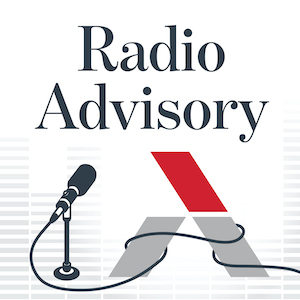Auto logout in seconds.
Continue LogoutWriting for the New York Times, Aaron Carroll, the chief health officer of Indiana University, explains which measures public health experts should focus on instead of debating "things that have become hopelessly politicized like mask mandates."
Radio Advisory: Aaron Carroll on how clinicians can combat medical misinformation
Masks have become 'hopelessly politicized'
On Monday, a federal judge in Florida struck down the Biden administration's mask mandate for airplanes and mass transit, arguing CDC overstepped its authority with the requirement. This led major airlines and other transportation services to no longer require their staff or passengers to wear masks.
On Wednesday, the Department of Justice appealedthe ruling after CDC said it was necessary to extend the mask mandate. "It's an unfortunate reality that mask mandates, and masks themselves, have become politicized and unpopular for many," Carroll writes. "It's why several governors and businesses rolled back requirements long before coronavirus case numbers dropped, and it is likely why airlines were also quick to do so."
While there is a widespread desire to live as if Covid-19 is no longer a threat, the United States does not currently have enough protections in place to do so, Carroll writes. The measures that would allow America to resume pre-pandemic life are not widely accessible, and vaccination and booster rates are still not as high as they should be, he says.
Ultimately, the Covid-19 pandemic is still not over. And according to CDC, too many people remain vulnerable to new variants that could cause a rise in cases.
Public health officials should focus on high-impact policies with a lower risk of backlash
Public health officials should not yet "give up on measures that might protect the public and make places and activities safer for those who cannot protect themselves," Carroll writes.
"[I]nstead of continuing to bicker about things that have become hopelessly politicized like mask mandates, those in public health could focus on efforts that might make much more of a difference," he adds.
According to Carroll, there are several things public health officials should focus on moving forward.
Perhaps one of the most important steps is getting better ventilation in buildings around the country. "Too many don't have filtration capabilities to remove infectious particles from the air, and too many aren't of high enough quality to prevent spread," Carroll writes.
Another policy that needs to be addressed is sick leave. According to Carroll, "[t]oo many Americans are fearful of staying home if ill, afraid to lose income or, even worse, employment." While U.S. work culture still values "toughing it out" and going to work when sick, Carroll argues that "campaigns are needed to explain that this is not only misguided but also dangerous."
In addition, policies should better support accommodations for individuals who are still at increased risk, especially those who are immunocompromised. "Some people may need to work from home; others may not be able to work at all," Carroll writes. "They and even some of their caregivers may need extra support as long as risk from Covid exists."
Carroll also suggests increasing access to Covid-19 treatments to address disparities in the health care system. "Making them free is necessary but not sufficient," he writes. "The testing, prescription and sourcing need to be easily accessible for everyone, and yet many of those who need the most help are struggling to get it."
While mandates and "cajoling" initially boosted immunization rates in the United States, Carroll argues that "they've become politically toxic as well." Instead, he suggests creating innovative vaccination campaigns. "We could do better at explaining how vaccines are free, safe and easily received. Public health departments should train a legion of trusted voices within different populations to help with the effort," Carroll writes.
Ultimately, "[c]ommitting to large-scale efforts that are less contentious and more effective seems like an easy choice," Carroll writes. "We spend too much time fighting one another and not enough time fighting the pandemic. Every day we do so, everyone loses." (Carroll, New York Times, 4/20)
Listen to the Radio Advisory episode
Medical misinformation has been a significant problem for a long time, but amid the Covid-19 pandemic, the problem has become even more widespread. In this episode, host Rachel Woods sits down with Dr. Aaron Carroll, author, professor, and Indiana University chief health officer—to discuss what all clinicians should do to combat medical misinformation.
Plus, Advisory Board experts Solomon Banjo and Pam Divack offer their take on clinician’s role in online spaces (with patients and with each other) and translate those same principles for the rest of the industry.
Don't miss out on the latest Advisory Board insights
Create your free account to access 1 resource, including the latest research and webinars.
Want access without creating an account?
You have 1 free members-only resource remaining this month.
1 free members-only resources remaining
1 free members-only resources remaining
You've reached your limit of free insights
Become a member to access all of Advisory Board's resources, events, and experts
Never miss out on the latest innovative health care content tailored to you.
Benefits include:
You've reached your limit of free insights
Become a member to access all of Advisory Board's resources, events, and experts
Never miss out on the latest innovative health care content tailored to you.
Benefits include:
This content is available through your Curated Research partnership with Advisory Board. Click on ‘view this resource’ to read the full piece
Email ask@advisory.com to learn more
Click on ‘Become a Member’ to learn about the benefits of a Full-Access partnership with Advisory Board
Never miss out on the latest innovative health care content tailored to you.
Benefits Include:
This is for members only. Learn more.
Click on ‘Become a Member’ to learn about the benefits of a Full-Access partnership with Advisory Board
Never miss out on the latest innovative health care content tailored to you.

